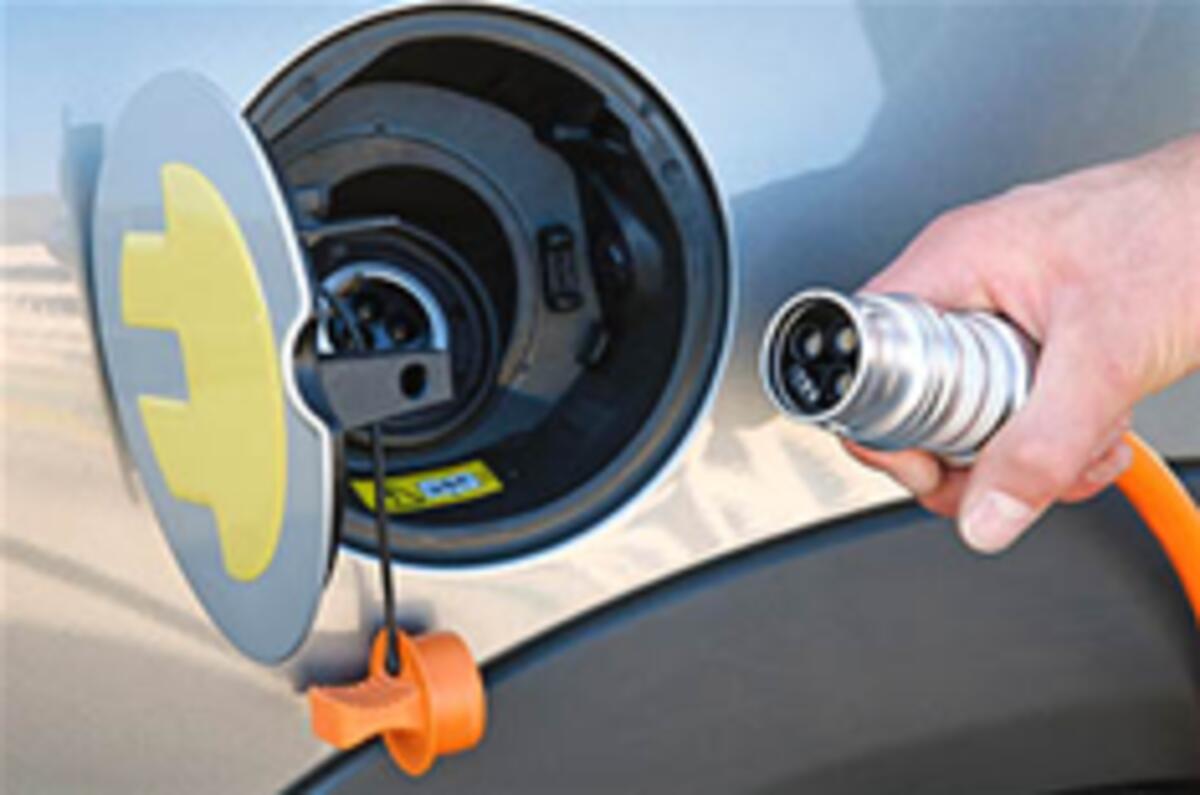Electric cars will come to dominate the market, but we’ll have to wait until around 2030 before they start to outnumber the cars we drive now according to Robert Bosch, the German-based automotive components giant.
The world’s biggest car-parts maker, which already makes drive motors, control systems and batteries for electric cars — and spends a large proportion of its £2.5billion annual R&D budget making them better — is adamant that electricity will eventually power most of the world’s new cars, but says it will be a 2020 before this new breed “makes a noticeable mark” on the world car market. The company estimates that by 2015 electric cars and plug-in hybrids will account for just 500,000 units of the world’s 90 million car production, rising to three million units (of 100 million) by 2020. At both dates, Prius-style hybrids should account for about five million sales. But the vast majority of cars will use improved and downsized turbo petrol and diesel engines similar to those we drive now, their efficiency boosted by as much as 50 percent. Speaking at an automotive seminar at the company’s giant Boxberg research centre, near Stuttgart, Bosch chairman Dr Bernd Bohr claimed ever stricter efficiency and clean air standards across the world will have “turned a mid-class diesel into an 80 mpg car, with CO2 emissions of just 99gm/km” well before the electric car begins in earnest. However, though the internal combustion engine is likely to be ‘unchallenged in the next 20 years”, Dr Bohr believes the takeover of electric power – either from batteries, or generated either by on-board range-extending engines or fuel cells – will be irresistible, on simple efficiency grounds.
For the oil equivalent of one kilowatt hour of power, today’s internal combustion engine delivers 1.5 to 2.5 kilometres of range, he says, a figure that improves to about 3.2km in a diesel hybrid. Under the same conditions, an electric motor delivers about 6.5km of range. The major hurdle for electric cars remains the weight and cost of their batteries, says Dr Bohr. Bosch is “working hard” to develop the lithium ion variety it believes has the best development potential for cars, through a joint venture with Samsung.
At present, says Dr Bohr, a li-ion battery that can propel a 1000kg car for the 200 kilometre range most buyers say they need, weighs 250kg and costs around 17,000 Euros (£14,500), more than the market can bear. But Bosch is “very confident” that by 2015 it will have cut weight by around 30 per cent and cost by nearly half, allowing manufacturers to begin using them in mass-market models.




Join the debate
Add your comment
marki
Its a great pleasure reading your post.Its full of information I am looking for and I love to post a comment that "The content of your post is awesome" Great work. http://healthein.net
Re: ssa
Positive site, where did u come up with the information on this posting? I'm pleased I discovered it though, ill be checking back soon to find out what additional posts you include. healthein.net